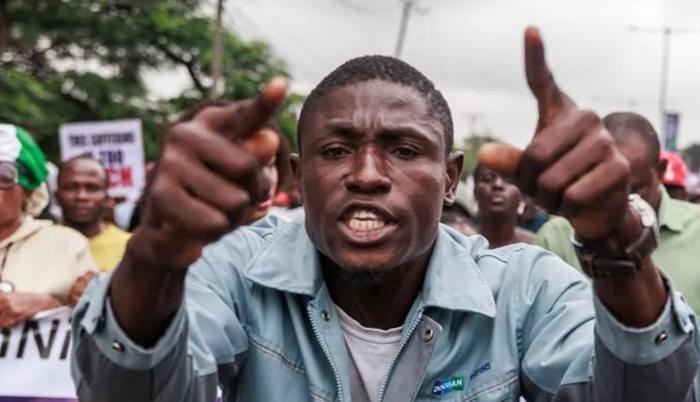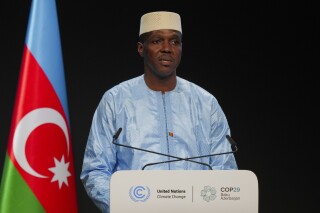
ABUJA, Aug 3 (NNN-AGENCIES) — Millions of residents in northern Nigeria have been placed under 24-hour curfews amid nationwide protests against the high cost of living.
Governments in the states of Kano, Jigawa, Yobe and Katsina have ordered locals not to leave their homes and therefore not attend protests.
The authorities say the curfew is necessary because “hoodlums” have hijacked the protests in order to loot and vandalise properties.
There is a heavy security presence around the country with nine more “days of rage” scheduled by the movement’s organisers.
On the first day (Aug 1), demonstrations in the northern city of Kano drew the largest crowds.
Police fired live bullets and tear gas – and sprayed hot water – to try and disperse thousands of demonstrators. Three people were shot dead and many others were injured.
Looters also broke into a warehouse near the Kano governor’s house and police say 269 people have since been arrested with the recovery of many 25-litre groundnut oil cartons and other items taken.
According to rights group Amnesty International, 13 protesters across Nigeria were killed by security forces on the first day of the protests.
On Thursday night, Nigeria’s police chief Kayode Egbetokun said four people in the north-eastern state of Borno had been killed by an “explosion” within a crowd of protesters.
Thirty-four others were “severely” injured, he said.
A curfew was announced there after anti-government protesters began marching in the state capital, Maiduguri, although the authorities cited an earlier explosion as the reason why Borno had joined its neighbouring states in imposing a 24-hour lockdown.
The blast on Wednesday night had killed 16 people at a teashop in the rural community of Kawori, according to local reports.
No-one has said they were behind the attack, but locals suspect it was carried out by notorious jihadist group Boko Haram, which has been active in the north-east since 2009.
On Friday, protesters regrouped in major cities across the country. In the capital city, Abuja, police fired tear gas in an effort to stop protesters marching on the city centre and other satellite towns.
In Lagos, Nigeria’s biggest city, some banks and shops reopened after closing on the first day of the protests – and the internet connection remains glitchy.
Inspector-General Egbetokun said he had placed his officers on “red alert”. The police are prepared to respond swiftly to any threats to public safety and order, he added.
The nationwide demonstrations were organised via social media using the hashtag #EndBadGovernance and inspired by the recent success of protesters in Kenya, who forced the government there to scrap plans to increase taxes.
During Thursday’s protests, which were largely peaceful in the south, demonstrators chanted slogans such as: “We are hungry.”
Many of them are angered by President Bola Tinubu’s removal of a subsidy on fuel – announced with immediate effect during his inauguration speech in May 2023.
It was aimed at cutting government expenditure, but sent pump prices soaring with a ripple effect on other goods, such as food.
Protesters also want the government to carry out wide-ranging reforms to the country’s electoral system and the judiciary.
A spokesperson for Kano’s governor, Abba Kabir Yusuf, said protests there were largely peaceful but a curfew was necessary because of the “rampant looting, destruction of property and violence” unleashed by “thugs”.
Likewise, Yobe State Government imposed a curfew on the areas of Potiskum, Gashua, and Nguru, where it says “hoodlums are taking advantage of the protest to vandalise and loot government and private properties”.
Katsina’s government said “miscreants” had “hijacked the protests” there. — NNN-AGENCIES




